
Emerging technologies are changing many aspects of human life, and the electronics industry is one of the areas directly influenced by these advancements. From artificial intelligence and the Internet of Things to robotics and biotechnology, all of these technologies play a key role in the progress and transformation of the electronics industry. technologies like AI, IoT, robotics, and biotechnology are revolutionizing the electronics industry, enhancing efficiency and innovation. This article explores the connection between these technologies and the electronics industry and how they impact it.
1. Artificial Intelligence (AI) and Machine Learning (ML) in Electronics
Artificial intelligence and machine learning are some of the greatest breakthroughs in the electronics industry. These technologies use complex algorithms and big data processing to make electronics smarter. From image processing systems to voice recognition and command systems, AI can give electronics the ability to analyze and learn from data.
In hardware, processors and circuits designed to support machine learning algorithms have become essential. This has led to advancements in automation, self-driving cars, and smart medical devices.
2. Augmented Reality (AR) and Virtual Reality (VR) in Electronics
Augmented reality and virtual reality are being utilized in the electronics industry, particularly in the design, manufacturing, and testing of new devices and electronic components. For example, augmented reality is used to improve the accuracy and speed of PCB (Printed Circuit Board) design and simulations.
In education, virtual reality is used to simulate laboratory and industrial environments to train technicians and engineers in electronics. These technologies are also employed in electronic repair and maintenance, where technicians can perform repairs live using augmented reality.
3. Internet of Things (IoT) and Electronics
The Internet of Things, which refers to the connection of physical devices to the internet for collecting and exchanging data, is one of the largest transformations in the electronics industry. This technology requires the design and production of new and advanced electronic components to connect devices to wireless networks and transfer data.
In electronics, IoT has led to the development of sensors, chips, and low-power boards. From smart homes to connected medical devices, IoT enhances electronics technologies in areas like energy management, health monitoring, and security.
Also see:
4. Biotechnology and Genetic Engineering in Electronics
Today, the intersection between biotechnology and electronics can be seen in areas like microelectronics for medical devices and advanced laboratory equipment. Cutting-edge medical devices such as wearable health monitors, glucose measurement devices, and other electronics designed for diagnosing and treating diseases are all designed and built with biotechnology and electronics technologies.
Additionally, the use of biosensors and electronic circuits to analyze biological data can bring about breakthroughs in early disease detection and improved treatments.
5. Renewable Energy Technologies and Environmental Impact in Electronics
Renewable energy technologies, especially in the electronics industry, play a critical role. From solar panels to wind turbines, all these systems require advanced electronic components for converting natural energy into usable power.
Energy storage systems, such as batteries and supercapacitors, are also evolving to store energy from renewable sources and make it available for later use. In this regard, electronics plays a vital role in designing smart energy systems, smart grids, and optimizing energy consumption.
6. Robotics and Automation in Electronics
Advanced robotics and automation, using emerging technologies, enable the electronics world to automate industrial, medical, and even everyday tasks. Robots, which are made up of complex electronic components like sensors, processors, and motors, can perform various tasks with precision and speed.
In manufacturing, robots are used for complex tasks such as welding, painting, and assembling parts, all using advanced electronic circuits. In healthcare, surgical robots and assistive robots for the elderly rely on robotics and electronics technologies to provide medical services.
Conclusion
Emerging technologies are profoundly changing and transforming the electronics industry. From artificial intelligence (AI) and Internet of Things (IoT) to biotechnology and robotics, all these technologies contribute to improving the quality of life, increasing productivity, and offering innovative solutions across various industries. To stay in sync with these transformations, the electronics industry must continuously evolve and embrace these technologies to reach new milestones of progress. see List of emerging technologies of Electronic, IT, and communications.
FAQ
How is AI unlocking the future of smarter electronics?
AI powers the next-gen electronics with real-time learning, automating tasks from smart home controls to self-driving cars and wearable medical devices.
Why is the IoT the heartbeat of modern electronics?
IoT connects everyday devices to the digital world, revolutionizing smart living, healthcare, and energy systems with cutting-edge sensors and wireless tech.
Suggested content:

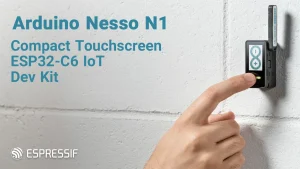
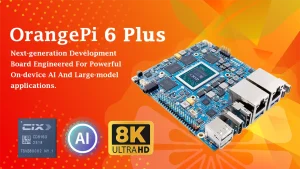
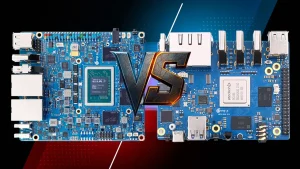
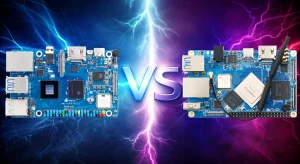
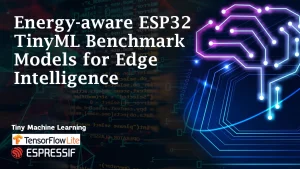
8 thoughts on “Emerging Technologies and Their Impact on Electronics”
Heya! I just wanted to ask if you ever have any issues with hackers?
My last blog (wordpress) was hacked and I ended up losing
many months of hard work due to no data backup. Do you have any solutions to stop hackers?
you are really a excellent webmaster. The site loading speed is amazing.
It seems that you are doing any distinctive trick.
In addition, The contents are masterpiece. you’ve performed a magnificent process on this matter!
Hi
Thanks for your support.
My spouse and I absolutely love your blog and find most of your post’s
to be just what I’m looking for. Would you offer guest writers to write content available for you?
I wouldn’t mind producing a post or elaborating on a number of the subjects you write about
here. Again, awesome web site!
Hello,
We are delighted that you enjoy the content of this blog.
We warmly look forward to receiving your articles.
The following email is dedicated to receiving articles from esteemed visitors like you:
sub[at]blog[dot]siqma[dot]com
Have a great day
Pingback: AI and machine learning in circuit design
Pingback: Integrated Circuits vs SoC: What Powers Electronics in 2025?
i need information for future business here in ecuador
regards